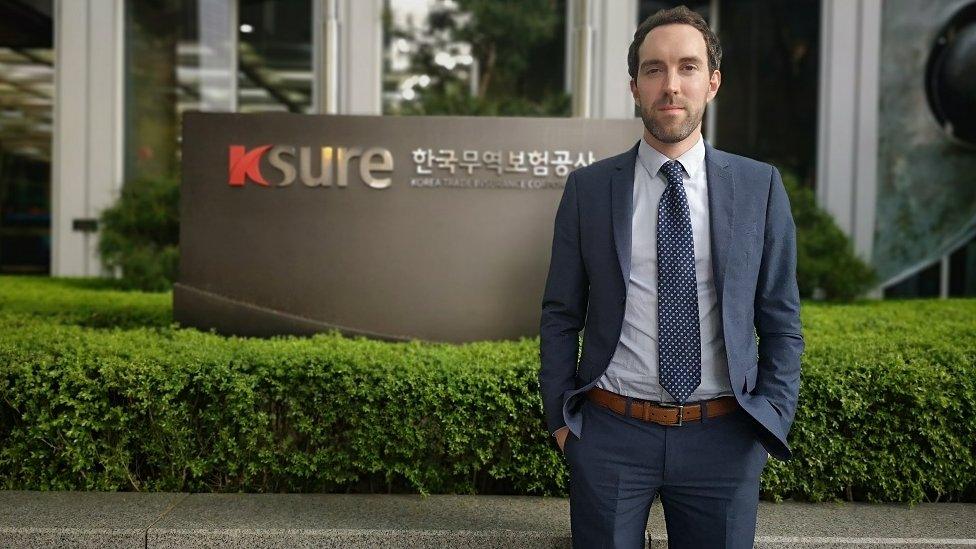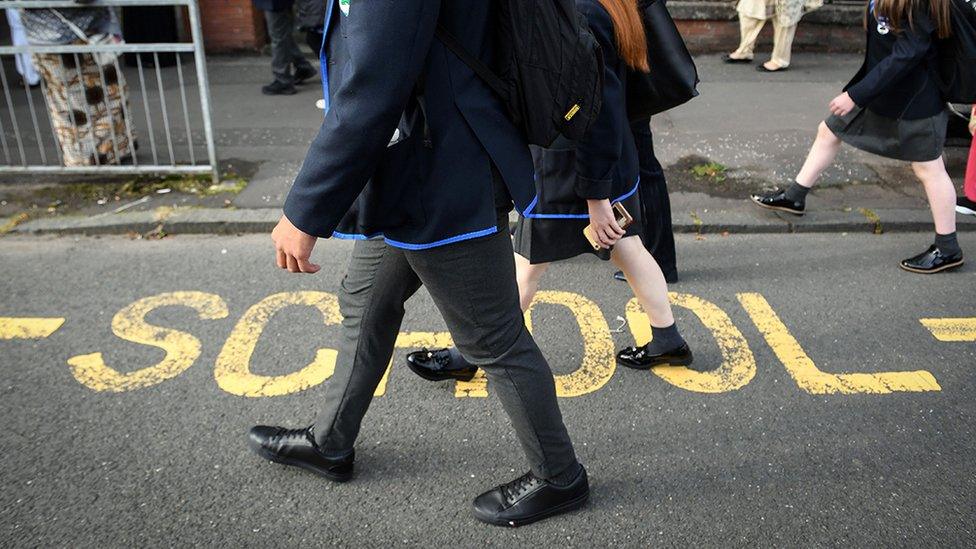Integrated education expansion plan branded 'action plan with no action'
- Published

Adam McGibbon says the strategy is "paper-thin"
A Department of Education strategy to grow integrated education has been called "an action plan with no action".
The criticism came from an organisation representing former pupils from integrated schools.
The department has a new legal obligation to give more support to integrated education.
That has been the case since Stormont voted in favour of a new law in one of their last acts before the assembly was dissolved in March 2022.
It was based on bill brought by Alliance Party assembly member Kellie Armstrong.
The law means the department has to grow the number of integrated school places and the number of children being educated in them.
The department said it was committed to meeting its statutory duties under the education act.
'Snail's pace'
There had been fierce debate over the new law, which was criticised by some schools bodies and the four main churches.
They were concerned that it would "elevate integrated schools" above other types of school.
But others backed the law, including the principal of Northern Ireland's oldest integrated school Lagan College.
Only 70 of more than 1,000 schools in Northern Ireland are formally integrated.
Adam McGibbon from Integrated AlumNI, a charity representing former integrated school pupils, said there was a "snail's pace approach" to growing integrated education.
"This is in stark contrast to the support for the expansion of integrated education shared by world leaders on their visits to Northern Ireland in the past two weeks," he said.
"Prime Minister Rishi Sunak suggested that integrated education 'should be the norm, not the exception', but this paper-thin strategy ensures that for many Northern Ireland parents and kids, they still won't even have the choice of an integrated school."

The strategy does not set targets for the growth of pupil or school numbers
The total funding for integrated schools in 2022-23 was £111m, about 8% of the total schools budget of £1.383bn.
Mr McGibbon was responding to a strategy published by the department
The Integrated Education Act requires it to produce such a strategy or action plan to show how it would grow integrated education.
The strategy said, for instance, that between April 2022 and March 2023 the department had created an additional 95 places for pupils in integrated schools through a process known as temporary variation.
It sets out 15 actions that the Department of Education will undertake, including assessing demand for integrated education, publishing data on that demand and updated information and guidance for parents.
But the strategy does not set targets for the growth of pupil or school numbers or specify how much money the department will spend on growing integrated education.
"A budget allocation has been identified to support implementation of this initial strategy. As the implementation of the strategy develops, a fuller and more detailed assessment of budget requirements will be needed," the strategy said.
In a statement a spokesperson for the Department of Education said it was committed to meeting its statutory duties under the Integrated Education Act.
"The Integrated Education Strategy provides a vision for all involved in the sector to create a vibrant and supported network of sustainable integrated schools providing high-quality integrated education to children and young people," they continued.
Related topics
- Published4 March 2022
